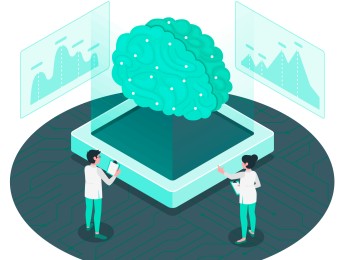Government institutions around the world are expected to deliver more with fewer resources. To meet these demands, public sector organizations must rethink how they operate and serve their communities. This course provides practical strategies to build smart, responsive, and accountable public institutions.
Designed with simplicity in mind, the training explores management tools, reform pathways, and real-life cases of public innovation. Participants will leave with actionable insights to lead reforms and improve services within their own departments or agencies.
By joining this course, participants will be able to:
- Identify the challenges in today’s public service environment.
- Use modern management tools to improve government operations.
- Explore reform models from various global settings.
- Strengthen accountability and citizen trust.
- Build partnerships and apply systems thinking.
- Lead and support reform efforts in diverse contexts.
- Promote equity, innovation, and digital inclusion in public programs.
This course is ideal for:
- Civil servants and government staff at any level.
- Development professionals involved in governance work.
- Reform consultants and advisors.
- Policy researchers and public administration academics.
- Professionals in international institutions and donor agencies.
- NGO personnel involved in public sector projects.
The course blends simple lectures, interactive discussions, and team-based activities. It uses real-world cases, videos, group brainstorming, and reform mapping tools to ensure that all learning is practical and easy to apply.
Day 5 of each course is reserved for a Q&A session, which may occur off-site. For 10-day courses, this also applies to day 10
Section 1: Introduction to Public Sector Governance
- What is the public sector and why does it matter?
- Key roles and responsibilities of government institutions.
- The difference between public and private management.
- Values in public service: transparency, fairness, efficiency.
- Accountability and the role of citizens.
- Common public sector challenges today.
- Importance of public trust.
Section 2: Strategic Public Management
- Planning and goal setting in public institutions.
- Managing resources effectively: people, budgets, time.
- Leadership in public organizations.
- Monitoring results and ensuring quality services.
- The role of middle managers in change.
- Importance of coordination between departments.
- Dealing with bureaucracy.
Section 3: Understanding Reform Processes
- What is reform? Why is it needed?
- Drivers of public sector reform (internal and external).
- Challenges and resistance to reform.
- Types of reform: administrative, fiscal, digital, structural.
- Case studies of reform in different countries.
- Reform vs. transformation: what’s the difference?
- Keeping reform citizen-focused.
Section 4: Performance Improvement Tools
- Key performance indicators (KPIs) in public service.
- Performance-based budgeting.
- Service delivery standards and measurement.
- Feedback loops and citizen surveys.
- Benchmarking and comparisons.
- Evaluation frameworks and dashboards.
- Incentivizing high performance.
Section 5: Public-Private and Cross-Sector Collaboration
- What is a public-private partnership (PPP)?
- When to consider PPPs.
- Risks and benefits of working with the private sector.
- Examples of successful collaborations.
- Engaging NGOs and community-based organizations.
- Role of donor agencies and international partners.
- Ethical concerns in partnerships.
Section 6: Digital Transformation in the Public Sector
- Using technology to improve public services.
- E-government tools and platforms.
- Data collection and transparency.
- Challenges in digital access and inclusion.
- Cybersecurity in public systems.
- Training staff for the digital shift.
- AI and automation: future of public management.
Section 7: Leading Reform and Managing Change
- Building a reform team and coalition.
- Communicating reform goals effectively.
- Overcoming resistance and fear of change.
- Training and empowering civil servants.
- Keeping citizens involved in the process.
- Reviewing and adjusting the reform journey.
- Sustainability and long-term impact.
Upon successful completion of this training course, delegates will be awarded a Holistique Training Certificate of Completion. For those who attend and complete the online training course, a Holistique Training e-Certificate will be provided.
Holistique Training Certificates are accredited by the British Accreditation Council (BAC) and The CPD Certification Service (CPD), and are certified under ISO 9001, ISO 21001, and ISO 29993 standards.
CPD credits for this course are granted by our Certificates and will be reflected on the Holistique Training Certificate of Completion. In accordance with the standards of The CPD Certification Service, one CPD credit is awarded per hour of course attendance. A maximum of 50 CPD credits can be claimed for any single course we currently offer.
- Course Code IND11 - 117
- Course Format Classroom, Online,
- Duration 10 days













